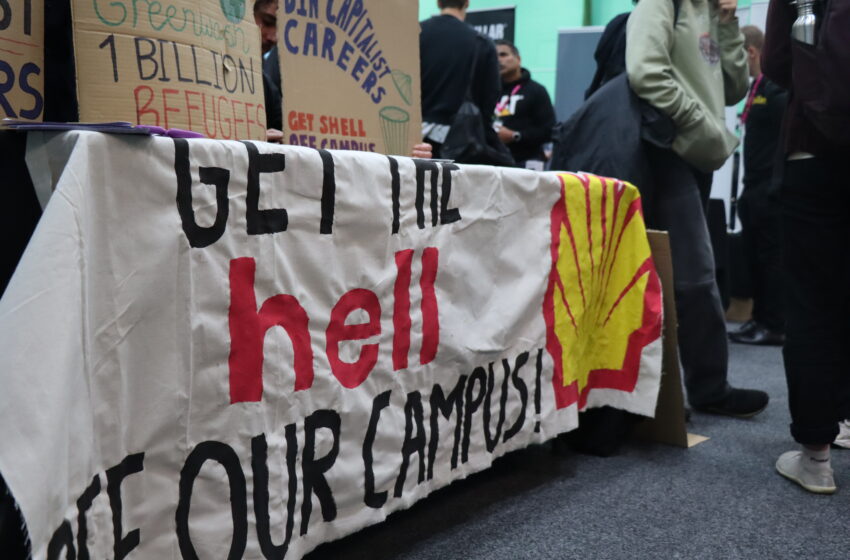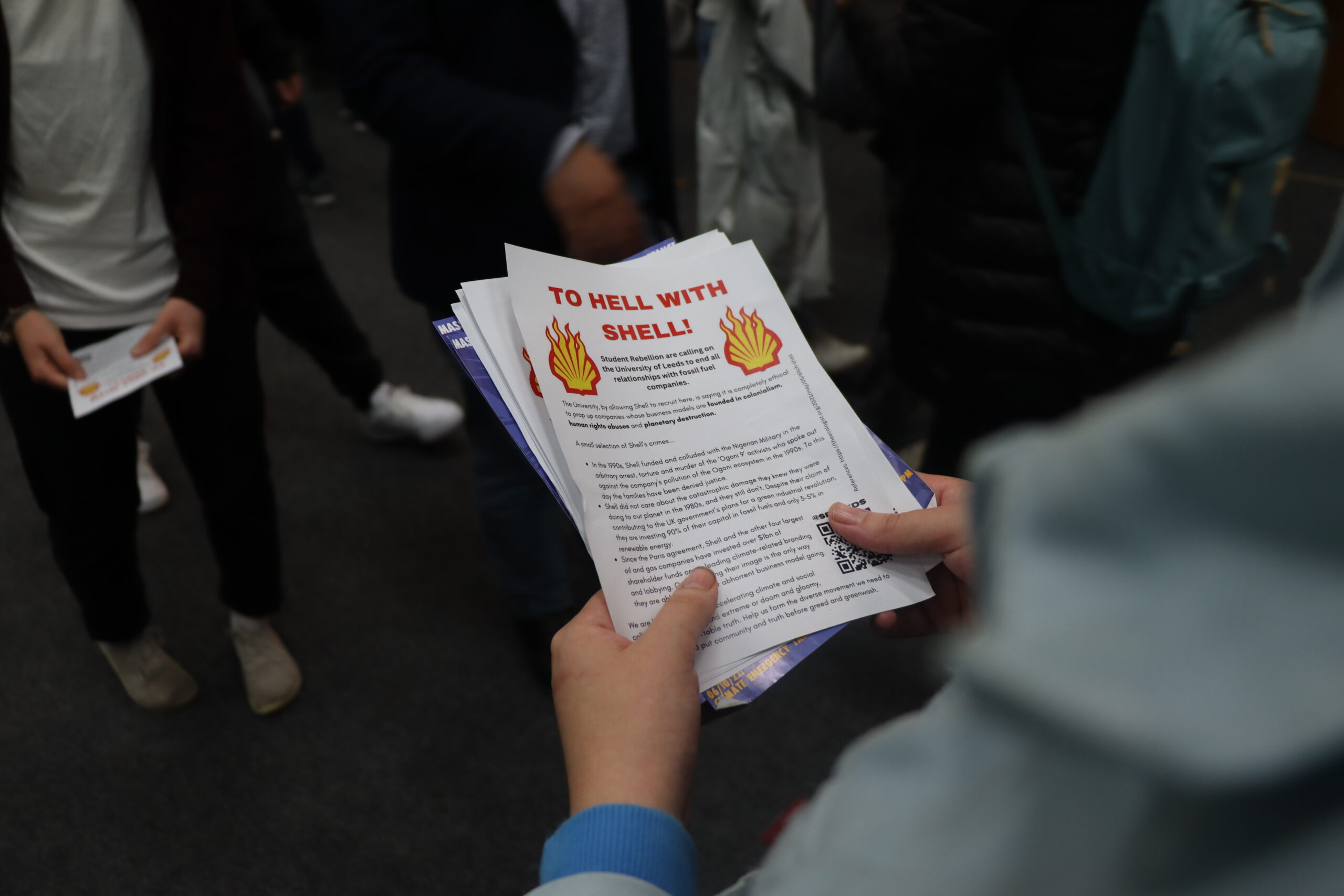
Why are Student Rebellion saying, “To Hell with Shell”?
While weaving through the stalls of the University’s careers fair I had little success in finding
my occupational calling. However, I did come across one stall unlike the rest. This stall was
draped in a banner showing the Shell logo and reading the words “GET THE HELL OFF OUR
CAMPUS”.
The group occupying this stall were Student Rebellion Leeds, protesting the decision to
invite Shell to host a stall at the careers fair. The group had seen that Shell were meant to be
at the fair, held on October 12th, and emailed the University management to disagree with
the invitation. In response, the University warned all the companies at the careers fair that
student protests would be a possibility. Shell decided not to come. Instead, Student
Rebellion took their empty stall, filled it with placards and banners and started chatting to
students about ethical careers and why they thought it was important.

“I think it’s pretty shocking. The University claims to have this set of values and to really stand for students, but in fact they’re letting companies like Shell onto our campus,” one of the protesters told me. A second-year student and member of Student Rebellion, she prefers to remain anonymous for our interview, suggesting the pseudonym Shelly (pun very much intended).
Image Credits: Student Rebellion.
“We didn’t think it was appropriate for companies like Shell, with an appalling human rights
history, and obviously contributing to the climate crisis, to be on our campus and be
advertising to students,” she explains. Shell have been criticised for greenwashing their
image, focusing branding on climate-friendly action while causing damage to the planet
through the exploitation of fossil fuels. They have also been accused of being complicit in
the unlawful arrest and murder of the ‘Ogoni Nine’ activists, silenced by Nigeria’s military
for speaking out against the pollution caused by oil being pumped in their homeland.
My conversation with Shelly turns to the tactic of de-platforming, a method that acts by
denying people or organisations a voice on campus. Crucially, it was Shell’s own decision not
to turn up to the careers fair, once they were aware of the possibility of student protests,
rather than a ban by the University. Although this meant the actions of Student Rebellion
were not de-platforming, Shelly tells me, “I am glad they think we were threatening enough
not to turn up. But [de-platforming] definitely has a place. Shell has had plenty enough time
to say what it wants to say. The University has a responsibility to platform careers that are
positive and bringing good to the world.”
Student Rebellion have shown a readiness to hold the University’s Vice-Chancellor, Simone Buitendijk, accountable. On October 18th, when speaking as part of a panel discussion focused on regional collaboration for climate change, the Vice-Chancellor was questioned by activists about the invitation of Shell to campus. Buitendijk appeared to avoid grappling with the question, describing it as an “ongoing conversation” without “one yes-or-no, black-and-white answer” that could be given then and there. She promised that “we are looking into this with our researchers, with students”. With this response, it is not a stretch to fear the assurances made by the University are vague, lacking in any real sense of commitment.

Shelly is not wholly damming of the University, suggesting some of the action taken has been positive as “they’ve got this climate plan which is a great step forward”. Despite this, she insisted the plan “doesn’t feel as urgent as it should be”. “The Vice-Chancellor is quite good at telling us she is doing things but, in reality, the School of Earth and Environment is still receiving money from fossil fuel companies that shouldn’t be in our University at all”.
Image Credit: Student Rebellion.
At the end of my interview, Shelly discusses a recent move taken by Birkbeck, University of
London, which has a new ethical careers policy to ensure their careers service will not hold
relationships with any kind of oil, gas, or mining companies. This move is supported by the
National Union of Students and the Universities and College Union. Yet, on the Leeds
University career’s website, it outlines that they will not take any responsibility for those
invited to speak. The contrast is stark. Why can our University not take the same action as
Birkbeck?
It is clear that the University is not responding as Student Rebellion would like. Shelly
informs me that the upcoming STEM careers fair has invited Schlumberger, an oil-field
services company that provides technology to companies like BP and Shell to dig for more
oil. “Things like that are a reminder that Shell didn’t turn up last week, but this week they
could again”.
Header Image Credits: Student Rebellion.

